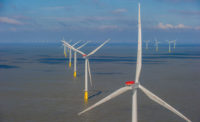4Q Cost Report: Costs in Europe are Flat
Prices across Europe are “broadly flat,” rising by around 2% in France and Germany and more slowly in southern European countries, says Simon Rawlinson, head of strategic research and insight at Arcadis LLP, London. Inflation reaches 3% to 4% in Eastern Europe, fueled partly by European Union infrastructure funding.
|
Related Link:
4th Quarterly Cost Report
|
Increasing Chinese exports and falling commodity prices are constraining inflation, though the weaker euro is negating some of the impacts, says Rawlinson. With the E.U. workforce shrinking 20% between 2008 and 2014, there is little labor inflation except, for example, in the U.K. and the Irish Republic, he adds.
In the Irish Republic, “the market has bounced back strongly,” says Kevin James, the local managing director of London-based cost consultant Gardiner & Theobald (G&T). Since about half the country’s major contractors perished in the banking crisis, the weak supply side is fueling bid-price inflation at around 5% a year, says James.
The U.K. market helped to boost G&T’s sales by 19% last year, says partner Gavin Murgatroyd. The upsurge has fueled a 10% average bid-price hike in the past two years and will fall to 4% next year, as the market approaches the “peak of affordability,” he forecasts.
Murgatroyd also says labor shortages are a major inflation driver. “If you know how to put on a hardhat, there’s a job for you,” he quips. Weaker global demand and a strong U.K. currency are suppressing prices, but savings are not being passed on to owners, he adds.
G&T has withdrawn from less rewarding Eastern Europe to focus on the U.K. It sold its operation in six markets to four regional partners two years ago. Now operating under the name Sentient, the sold business is thriving, says former G&T partner Jan Holyst, now Sentient’s managing director for Poland. He reports “a definite upturn” in Polish construction, reflected by a 30% rise in his firm’s sales. With contractors being more selective, bid prices have risen 3% to 5%, he adds.
Elsewhere in Europe, inflation is low from buoyant Sweden to troubled Spain, which is climbing out of a deep recession. Sweden’s construction demand remains strong, says Magnus Meyer, managing director of WSP Sverige A.B., Stockholm. Further, he says growing competition from foreign firms is constraining bid prices, and fees “are going down still.”
In Spain, “costs of materials, products and labor vary from one location to the next,” reports Miguel Jurado, president of major contractor FCC Construction, Madrid. The global oil-price drop has reduced some costs, “but we have not seen a general trend,” he adds.
As Spain’s economy revives, the commercial sector is “generating interest,” while residential demand grew 5% this year and will average 10% annually over the next two years, forecasts Jurado. Infrastructure investment fell “drastically” after the crisis, and future growth is well below the European average.


.jpg?height=200&t=1640194228&width=200)
